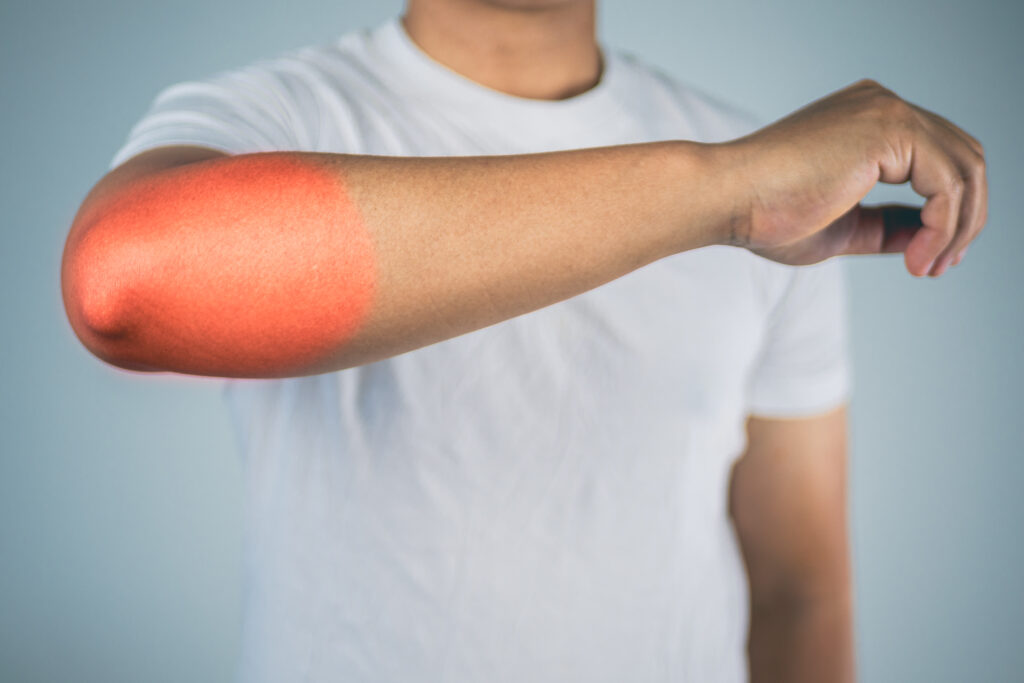When you sustain a sports injury, it's easy to brush it off or think you'll just recover on your own. However, seeking professional care is crucial for preventing long-term damage and ensuring a swift recovery. You might not realize that expert assessments can uncover underlying issues that could hinder your performance. Additionally, tailored rehabilitation plans can make a significant difference in your healing journey. So, what are the key reasons you should prioritize professional help? Let's explore the benefits that could ultimately enhance your athletic experience.
Prevent Long-Term Damage
When you experience a sports injury, seeking care promptly can help prevent long-term damage. Ignoring an injury or delaying treatment might seem like an option, but it can lead to complications that linger well beyond your recovery period. The sooner you address an injury, the more effectively you can mitigate risks like chronic pain, instability, or even arthritis.
You might think that a sprain or strain will heal on its own, but without proper evaluation, you could be overlooking underlying issues. A healthcare professional can assess the severity of your injury and recommend an appropriate treatment plan. This early intervention not only addresses immediate pain but also helps prevent the injury from worsening.
Additionally, your body's healing process is complex. If you don't receive the right care, you may compensate for your injury in ways that strain other muscles and joints. This compensation can lead to new injuries, creating a cycle of pain and dysfunction that's hard to break.
Getting professional care early on can set you on the right path to full recovery. You'll receive guidance on how to safely return to your sport, which can make a significant difference in your performance and overall well-being.
Accelerate Recovery Time
When you seek care for sports injuries, you're not just treating the pain; you're also setting yourself up for a faster recovery.
Targeted treatment approaches and personalized rehabilitation programs can help you get back to your game quicker than you'd think.
Targeted Treatment Approaches
Targeted treatment approaches can greatly accelerate your recovery time from sports injuries. By focusing on the specific nature of your injury, these methods help address the underlying issues more effectively.
Whether it's through physical therapy, manual therapy, or modalities like ultrasound or electrical stimulation, each approach is designed to promote healing in a way that general treatments often can't.
When you opt for targeted care, you're not just getting a one-size-fits-all solution. Instead, you receive interventions tailored to your unique situation, which can considerably decrease inflammation and pain.
For example, if you've sprained your ankle, targeted exercises can strengthen the surrounding muscles and improve your range of motion.
Moreover, these approaches often include a combination of techniques that work synergistically to enhance recovery. You might find that a mixture of rest, ice, compression, and elevation, combined with specific rehabilitation exercises, leads to a quicker return to your favorite sports.
In essence, seeking targeted treatment guarantees that you're not only healing faster but also setting the stage for better long-term performance.
Don't just wait for the pain to fade; take action with a focused approach and get back to doing what you love.
Personalized Rehabilitation Programs
Personalized rehabilitation programs take the concept of targeted treatment to the next level by customizing recovery plans to fit your specific needs and goals. Instead of a one-size-fits-all approach, these programs consider your unique injury, fitness level, and lifestyle. This guarantees that you receive the most effective therapy tailored to your circumstances.
When you engage in a personalized rehabilitation program, you're not just following generic exercises; you're working on specific movements that enhance your strength, flexibility, and endurance in areas that matter most to your recovery.
Your therapist will closely monitor your progress, adjusting the plan as needed to keep you on track and motivated.
Additionally, this focused approach helps minimize the risk of re-injury by strengthening vulnerable areas. You'll also learn techniques for injury prevention, guaranteeing your return to sport is both safe and sustainable.
Enhance Performance
If you're looking to boost your athletic performance, seeking care for sports injuries is essential.
By improving your physical conditioning and optimizing your recovery time, you can get back to peak form faster.
Don't let injuries hold you back from achieving your best.
Improve Physical Conditioning
Improving your physical conditioning is crucial for enhancing performance in any sport. When you're in peak physical shape, you'll notice increased endurance, strength, and agility, which directly contribute to your overall athletic ability.
Regular training tailored to your sport can help you build muscle, improve cardiovascular health, and boost your flexibility.
If you're dealing with a sports injury, seeking care can prevent further complications and setbacks. A healthcare professional can guide you in developing a conditioning program that addresses your specific needs, ensuring you build strength while avoiding re-injury.
Incorporating exercises that simulate the demands of your sport can enhance your skills and keep you competitive. You'll also benefit from functional training, which prepares your body for real-life movements, reducing the risk of injuries.
Don't overlook the importance of proper nutrition and hydration; they're crucial components of physical conditioning. Fueling your body with the right nutrients supports recovery and sustains energy levels during training sessions.
Ultimately, improving your physical conditioning not only enhances your performance but also fosters a sense of confidence and satisfaction in your athletic journey.
Optimize Recovery Time
To enhance your performance, optimizing recovery time after a sports injury is essential. When you experience an injury, taking the right steps to heal quickly can make all the difference in returning to your sport at full strength. Seeking professional care is key, as experts can provide tailored recovery plans that address your specific needs.
During recovery, it's important to listen to your body. Resting adequately allows your muscles and tissues to repair. Don't rush back into training; instead, gradually reintroduce activities to avoid re-injury. Incorporating physical therapy can also help you regain strength and flexibility, ensuring a smoother shift back to your sport.
Nutrition plays a significant role, too. Fueling your body with the right nutrients promotes healing and boosts energy levels. Stay hydrated, and consider anti-inflammatory foods that aid in recovery.
Finally, mental well-being is just as important. Use this time to focus on techniques and strategies that enhance your performance once you return. By prioritizing recovery, you not only heal faster but also lay a solid foundation for improved athletic performance in the future.
Receive Professional Assessment
When you experience a sports injury, getting a professional assessment is vital for your recovery. You might think you can tough it out or self-diagnose, but doing so can lead to more serious issues down the road. A professional assessment helps identify the nature and extent of your injury, allowing for a more targeted treatment plan.
By consulting with a qualified healthcare provider, you gain access to their expertise. They'll use various diagnostic tools, such as physical examinations, imaging tests, or functional assessments, to determine the root cause of your pain or discomfort. This information is essential for understanding whether you've sustained a sprain, strain, fracture, or another type of injury.
Moreover, early intervention can greatly improve your chances of a full recovery. If you ignore symptoms or try to play through the pain, you risk aggravating the injury, which could prolong your time away from your favorite sport. Proper assessment helps you avoid unnecessary complications and guarantees that you follow a safe path to recovery.
Additionally, a professional can provide you with valuable insights into injury prevention, helping you understand what led to the injury in the first place. This knowledge empowers you to make informed decisions about your training and conditioning, ultimately reducing the risk of future injuries.
Access Tailored Rehabilitation
Accessing tailored rehabilitation after a sports injury can considerably enhance your recovery process. When you seek specialized care, you're not just getting generic advice; you're receiving a program designed specifically for your needs. This individualized approach addresses your unique injury, fitness level, and athletic goals, ensuring you regain strength and function effectively.
A tailored rehabilitation program typically begins with a thorough assessment by a qualified professional. They'll evaluate your injury, movement patterns, and overall physical condition, allowing them to create a plan that focuses on your specific challenges. This may include targeted exercises to restore range of motion, improve strength, and enhance stability. You won't be following a one-size-fits-all routine; instead, you'll work on exercises that target your specific areas of concern.
Moreover, a tailored rehabilitation program often incorporates various modalities, such as manual therapy, heat and cold treatments, and functional training. These techniques can help alleviate pain, reduce inflammation, and promote healing. You'll also receive guidance on proper techniques, so you're performing exercises safely and effectively, which is vital for a successful recovery.
Additionally, having a professional monitor your progress keeps you accountable and motivated. They can adjust your rehabilitation plan as you improve, ensuring you're always challenged but not overwhelmed. This personalized attention can make a significant difference in your recovery timeline and overall athletic performance.
Avoid Re-Injury
Completing a tailored rehabilitation program not only aids in recovery but also plays an essential role in avoiding re-injury. When you're recovering from a sports injury, it's important to follow the specific exercises and guidelines laid out by your healthcare provider. These programs are designed to strengthen the affected area, improve flexibility, and restore your range of motion, all of which help reduce the risk of future injuries.
One key aspect of avoiding re-injury is understanding your body's signals. As you progress through rehabilitation, pay attention to any discomfort or pain. It's important to differentiate between normal soreness from exercise and pain that indicates something's wrong. If you feel anything unusual, don't hesitate to consult your healthcare provider.
Gradually returning to your sport is another significant step in preventing re-injury. Jumping back into full activity too soon can lead to setbacks. Instead, ease back into your routine, starting with lighter activities and progressively increasing intensity. This approach allows your body to adapt and strengthens the muscles and tissues that support your movements.
Additionally, focus on proper technique in your sport. Working with a coach or a trainer can help you develop safe habits and correct any issues in your form. This proactive approach not only enhances performance but also minimizes the risk of re-injury.
Maintain Overall Well-Being
Maintaining your overall well-being is essential not just for recovery but also for enhancing your performance in sports. When you seek care for sports injuries, you're taking an important step towards ensuring your body is in the best possible condition. Proper treatment helps you heal physically but also supports your mental health. This holistic approach promotes a balanced lifestyle, which is vital for athletes.
When you address injuries promptly, you're reducing the risk of chronic pain and complications that could hinder your performance. It's not just about getting back in the game; it's about playing at your best. Seeking professional help can provide you with personalized recovery plans that consider your unique needs, helping you regain strength and flexibility.
Additionally, focusing on your well-being encourages healthy habits. Working with healthcare professionals can guide you in developing better nutrition, exercise routines, and stress management techniques.
These factors are all significant in optimizing your physical and mental performance, leading to improved athletic results.
Conclusion
Injuries don't have to sideline your athletic journey. By seeking professional care, you not only prevent long-term damage but also speed up your recovery and enhance your performance. Tailored rehabilitation and expert assessments help you avoid re-injury and maintain your overall well-being. Remember, investing in your health now means you'll be able to train smarter and play harder in the future. Don't wait—prioritize your recovery and keep your passion for sports alive!



